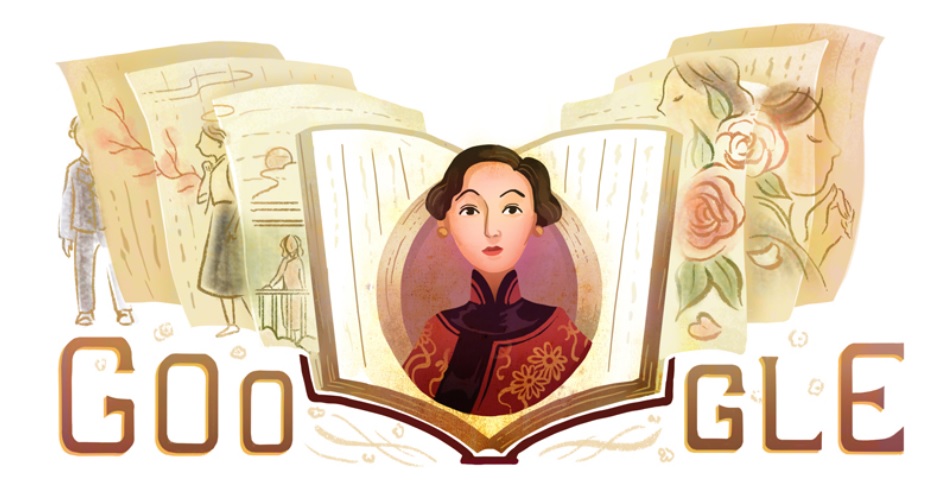Eileen Chang turns 100, Google doodle on Chinese-born American essayist, novelist

- Country:
- China
Happy Birthday Eileen Chang!!!
Google today dedicates a beautiful doodle to Eileen Chang, a Chinese-born American essayist, novelist, and screenwriter. Her most vital contribution was her construction of an alternative wartime narrative, one that deviated from the grand accounts of national salvation and revolution.
Eileen Chang was born on September 30, 1920. Today she turns 100. She was born with an aristocratic lineage and educated bilingually in Shanghai. She gained literary prominence in Japanese-occupied Shanghai between 1943 and 1945. But she escaped from China after the Communist takeover.
Eileen Chang was born to Zhang Zhiyi and Huang Suqiong. Her maternal great-grandfather, Huang Yisheng was a prominent naval commander. Her parents divorced in 1930 due to her father’s excessive addiction to opium and association with prostitutes and concubines. Their father raised her and her younger brother Zhang Zijing.
Upon graduation from high school, Eileen Chang had a fight with her stepmother and father. Eventually, she contracted dysentery. Instead of obtaining treatment for her, her father beat her and forced her to stay in her bedroom for six months. Eileen Chang ran away to live with her mother shortly after her 18th birthday; they remained in a new apartment for nearly two years, until she began to attend university and briefly lived in Hong Kong.
Eileen Chang was accepted to the University of London on a full scholarship in 1939. But she couldn’t attend in the wake of the war in Europe. Instead, she studied English Literature at the University of Hong Kong, where she met her lifelong friend, Fatima Mohideen.
In her early twenties Eileen Chang forged her path as a writer, and her short stories and essays, as well as her 1943 novella “The Golden Cangue,” established her as one of China’s most heralded new voices. Among her beloved works from this period are the novellas ‘Love in a Fallen City’ (1943) and ‘Red Rose, White Rose’ (1944), both of which are depicted in today’s Doodle. In 1955, Eileen Chang moved to the US, where she continued to write across a variety of mediums, from novels to screenplays for Hong Kong films. Her work exploded in popularity across the Chinese-speaking world in the 1970s, but Chang remained a modest and private person throughout her life.
Eileen Chang was found dead in her apartment on Rochester Avenue in Westwood, Los Angeles, by her landlord on September 8, 1995. She died from cardiovascular disease. According to her wish, she was cremated without any memorial service, and her ashes scattered in the Pacific Ocean.
According to a poet and professor of East Asian languages at the University of Southern California, Dominic Cheung, had it not been for the Chinese Civil War, Eileen Chang would have been a recipient of the Nobel Prize in Literature.
Also Read: Zohra Sehgal: Google doodle on an actress who breathed life through dance & cinema
- READ MORE ON:
- Eileen Chang
- Google doodle










